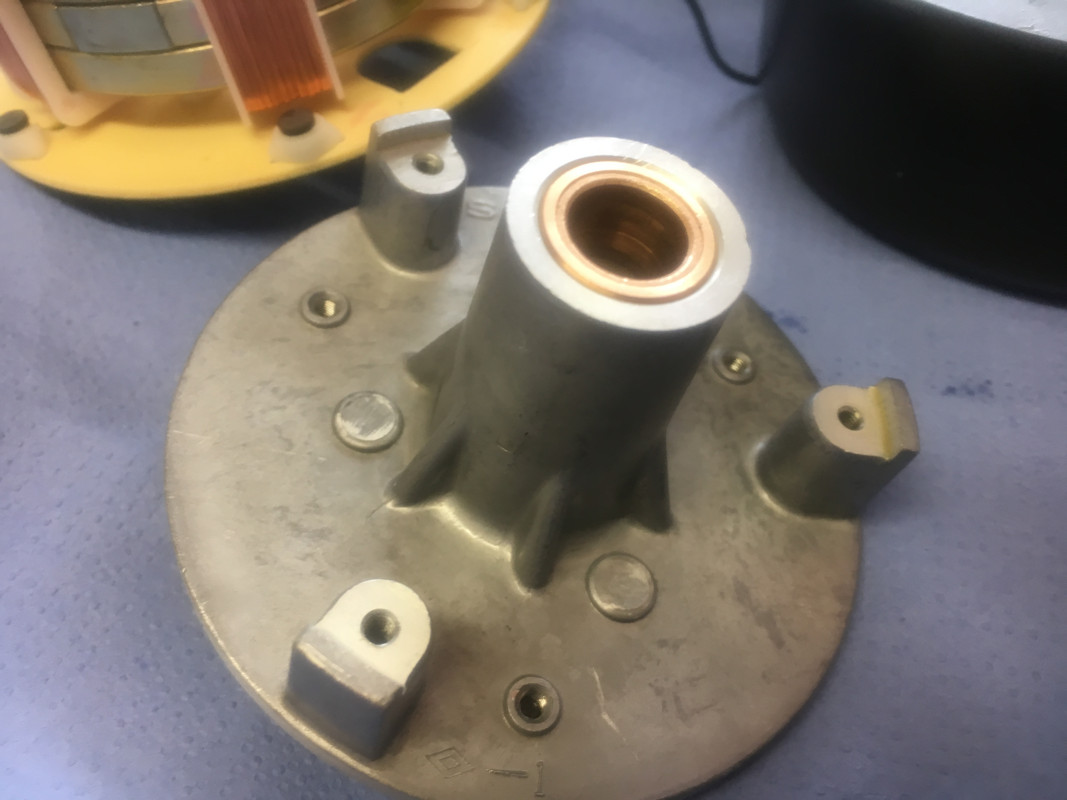Posted by jamie creighton 1 on 28/11/2019 05:26:46:
So any lathe recommendations?
Jamie asked in his first post 'could you guys advise on what lathe to go for that will turn to tight tolorences.'
The answer is most of them, but!
Machines that will turn accurately using nothing but the dials cost big money. For a lot of small-scale accurate work, the Cowell's is a good machine, but it's too small for general purpose work. People like the Sherline too; not as accurate or solid as Cowells, but still a decent machine. Mini-lathes are handy for small rather than miniature work, but if you have space, buying bigger is usually a good idea for general purpose work.
But I recommend focussing on what exactly is essential in the way of 'tight tolerances'. In practice, when making a simple bearing, I doubt many of us would insist on a machine capable of working to tight tolerances in the sense used in manufacturing were it's important to make parts interchangeable.
A slightly different technique considerably reduces the need for sooper-dooper machinery. Parts aren't reproduced from their measurements directly. For example, this bearing could be made by first drilling a hole slightly undersize through bronze, brass or oilite rod and then carefully boring the hole out to size. Likewise the outer diameter would be turned slightly oversize, and then carefully removing excess metal until the part fits into the turntable. In both cases 'size' is judged by reference to the shaft it's intended to fit, and the hole in the turntable. There's no requirement for lathe's dials to be spot on. When working by comparison, any lathe in reasonable condition will do the job.
Best advice I ever got was 'buy the biggest lathe you can manage'. Crudely put, a big lathe can usually do small work, but a small lathe can't do big. After that the choice is between second-hand and new. New lathes in the price range hobbyists are prepared to pay are made in the Far East, and they are a little rough. Second-hand industrial lathes are available at the moment for tiny money compared with their original cost because Industry and Education have dumped them wholesale in favour of CNC machines. Three problems with second-hand, they tend to be big (size and power), condition is all important buying anything second-had, and the cost of spare parts is often eye-watering! I feel choosing a lathe is more about one's attitude to risk than the machines technical virtues:
- Buying second-hand is at your risk.
- Chinese, bit rough but you get a lot for your money. Plenty of choice. Buying new in the UK is low risk because consumer protection and the supplier's generally positive attitude to customers, means an unacceptable dud can be sent back.
- Ex education, and industry. All second-hand, condition ranging from as new to total carp.
- Myford, good reputation for good reasons, not all of which are still valid! Historically the easy answer to any model engineer asking 'which lathe' Mostly second-hand but also available refurbished. Expensive, personally I think overvalued for what you get, especially when the machine is in poor condition due to wear or abuse. Beware of reading:
- Secondhand MYFORD, instead of
-
SECOND-HAND Myford
Hope that helps,
Dave
 Dell.
Dell.







